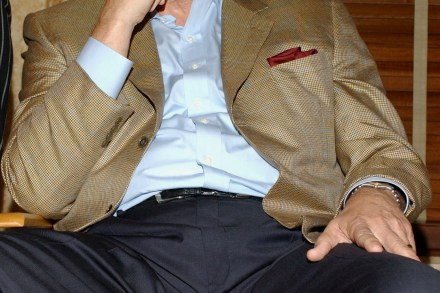Diary of a Notting Hill nobody | 2 June 2007
MONDAY Jed away for three weeks on horseback safari in Botswana and nobody knows who’s in charge. Nigel says it’s The Three Georges, Poppy reckons it’s Mr Maude, Wonky Tom says we ought to ring Sam — she’s bound to know what to do (‘All right, my darlin’, getcha notebook out…’). We will have to muddle on. Tom and I are doing a Grammar Schools Rebels stock-take — we estimate it’s 98 per cent of MPs and peers, including all of front bench, plus entire voluntary party. Personally, I feel this is going to make it difficult to draw a line under things by sacking Mr Brady. Last thing Jed








